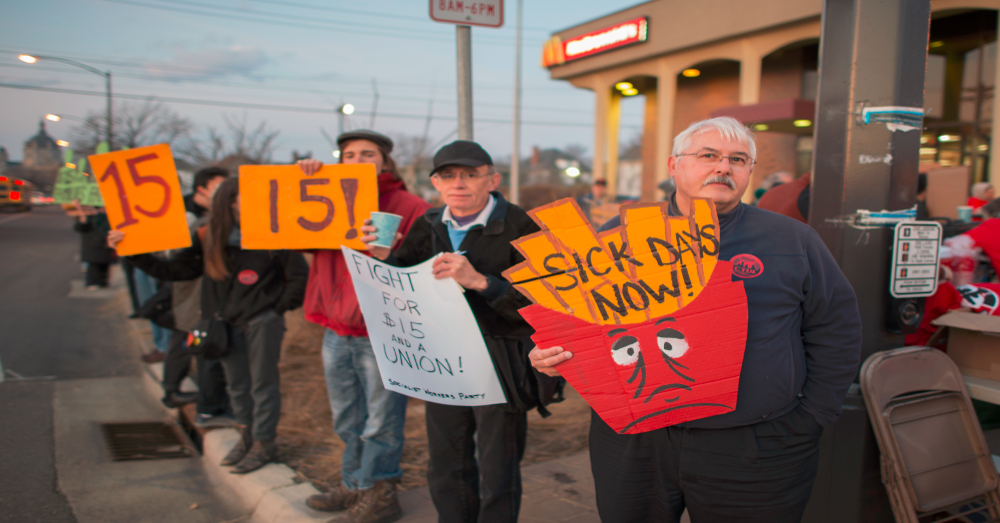
Fast Food vs. Workers: Inequality Is Feeding the US
Inequality doesn't just come out of the blue; it's intentionally created by decisions that elites make — usually behind closed doors, so those knocked down don't know what (or who) hit them. Take America's 4 million fast-food workers, whose average pay hovers around a miserly $300 a week before taxes.
January 5, 2018 | Source: Buzz Flash | by Jim Hightower
Inequality doesn’t just come out of the blue; it’s intentionally created by decisions that elites make — usually behind closed doors, so those knocked down don’t know what (or who) hit them.
Take America’s 4 million fast-food workers, whose average pay hovers around a miserly $300 a week before taxes.
With the labor market tightening, why don’t they just hop down the street to another franchise offering a better deal? Many try that, only to be rejected again and again, unaware that most fast-food chains have hidden within their franchising contracts “no-hire agreements,” prohibiting one franchisee from hiring another’s employees.
In a landmark study this year, two prominent labor economists at Princeton found that these secret bans on wage competition are used by more than 70,000 chain restaurants, including Burger King, Carl’s Jr., Domino’s and Pizza Hut.. By colluding to prevent millions of Americans from switching jobs to increase their incomes and opportunities, these giants have artificially kept the pay of fast-food workers and many other franchise employees stuck at poverty levels. That’s one place inequality comes from — and it’s downright un-American.
And what about the people who actually grow the food we eat? How are they treated by the Powers that Be? Every decade or so, America’s mass media are surprised to discover that migrant farmworkers are still being miserably paid and despicably treated by the industry that profits from their labor. Stories run, the public is outraged (again), assorted officials pledge action, then … nothing, no change takes place.
